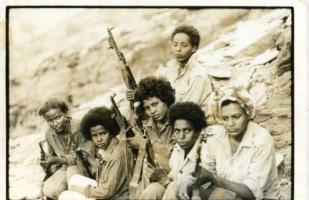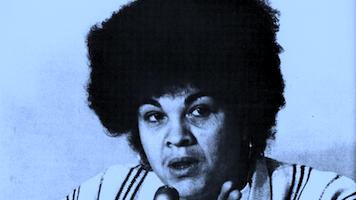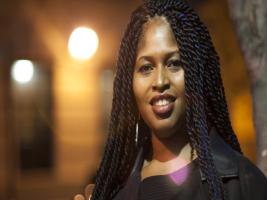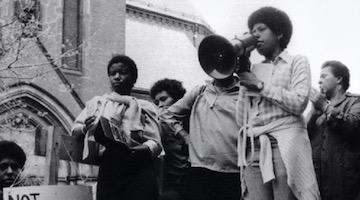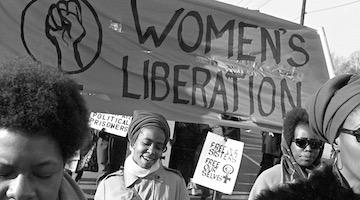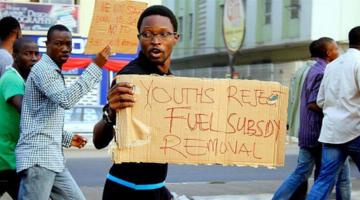BAR Book Forum: Cheryl R. Rodriguez, Dzodzi Tsikata, and Akosua Adomako Ampofo’s “Transatlantic Feminisms”
It is critical for Black feminists to be passionately involved in creating a global community of voices.
“Black feminism is far more than an academic endeavor.”
In this series, we ask acclaimed authors to answer five questions about their book. This week’s featured authors areCheryl R. Rodriguez, Dzodzi Tsikata, and Akosua Adomako Ampofo.They are editors of the book, Transatlantic Feminisms: Women and Gender Studies in Africa and the Diaspora. Dr. Cheryl Rodriguez was kind enough to participate in the interview below.
Roberto Sirvent: How can your book help BAR readers understand the current political and social climate?
Cheryl Rodriguez: I think it is a tremendous challenge to understand the current political and social climate. But it is clear that there are issues affecting people’s lives that are being distorted in order to maintain the current political moment. Further, this current political and social climate is fueled by the portrayal of Black and Brown peoples as the enemy. This book examines policies and practices from the perspectives of the marginalized. The feminist scholars in this volume take on topics that illustrate the ways in which women are affected by global hostilities; that explore the ways that punitive policies keep women and their families mired in poverty. The topics we research and write about are very real. One of the major themes of the volume is agency and survival, which we know are two defining characteristics of poor women’s lives. Within this theme the authors explore the harrowing realities of life for women and families in such countries as Haiti, the Dominican Republic, Ghana, Uganda and the United States. Immigration as a global issue becomes very clear in two very different essays describing Black women crossing borders in search of economic survival for their families. We address the lack of affordable housing in the U.S. and the work-family balance in Ghana. There are brilliant essays on Black women transforming democracies through electoral politics in African countries and the U.S. All of these topics speak to the need to address and resist patriarchy and hegemonic thinking, which I would say are the defining characteristics of the current social and political climate in 2019.
What do you hope activists and community organizers will take away from the book?
First let me say that Transatlantic Feminisms includes chapters on activism by activists. I was so excited to have very seasoned activists write about transformative feminist movement building in Tanzania, for example. It is enlightening to learn about the substantive work that women do with very little financial support all around the world. I have worked with women who live in public housing communities and learned that a major part of the work is creating opportunities for women and their families even when our concerns are not priorities to local leaders. I think it is critical for Black feminists to be passionately involved in creating a global community of voices that speak to the different ways that Black women talk about and experience intersectionality; to the different ways that Black women express understandings about race and ethnicity and the different ways that Black women understand their responsibilities to family and community. This was a major reason for the co-editing of this book by African American and Ghanaian scholars. I think there are many activists and community organizers who know that Black feminism is far more than an academic endeavor. In these times collective voices from the academy and the community are critical.
What do you hope readers will un-learn?
I feel that people who would want to read this book are people who are receptive to liberatory thinking and ideas. But I think all people of the Western world, in particular, need to understand how imperialism has affected our views on the larger world. One of the main notions that we need to examine is that of “progress.” How is progress creating darkness? At the same time I think we need to unlearn the idea that eradicating racism, sexism, classism and homophobia in Western societies is just a matter of having conversations or attending classes. There is daily evidence to the contrary. This is long term work that requires multiple approaches, many diverse strategies, and a commitment to ongoing collaboration.
Who are the intellectual heroes that inspire your work?
I am thrilled to say that there are so many brilliant and talented Black feminist scholars and activists of whom I am in awe. I was a feminist activist before I became a scholar and I learned about Black feminism through the scholarly work of women who were relentless in their commitment to telling truths about Black womanhood. Barbara Smith is one of my “sheroes.” She, Gloria Hull and Patricia Bell Scott audaciously ushered in the discipline of Black Women’s Studies and made it clear that Black women’s lives were inherently valuable. I was inspired to become a Black feminist anthropologist by Johnnetta Cole, an intellectual leader and a woman of great generosity. I also admire the co-editors of Transatlantic Feminisms, Dzodzi Tsikata and Akosua Adomako Ampofo, who are very highly accomplished scholars.
In what way does your book help us imagine new worlds?
There is an essay in the book on Shirley Chisholm, the first Black Congresswoman and the first Black woman to engage in a serious campaign for the U.S. presidency. When I think about Shirley Chisholm’s unwavering courage, I know that she shifted the world a bit despite the patriarchal racists in Congress who refused to acknowledge her or take her seriously. When I think about how she spoke out against sexism and racism, I know she paved a path for Barack Obama. She paved the way for the unlikely political success of Black women in Congress today. So, Transatlantic Feminisms helps us to imagine a world in which Black women are taken seriously.
Roberto Sirvent is Professor of Political and Social Ethics at Hope International University in Fullerton, CA. He also serves as the Outreach and Mentoring Coordinator for thePolitical Theology Network. He is co-author, with fellow BAR contributor Danny Haiphong, of the new book, American Exceptionalism and American Innocence: A People’s History of Fake News—From the Revolutionary War to the War on Terror.
COMMENTS?
Please join the conversation on Black Agenda Report's Facebook page at http://facebook.com/blackagendareport
Or, you can comment by emailing us at comments@blackagendareport.com

